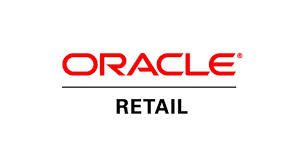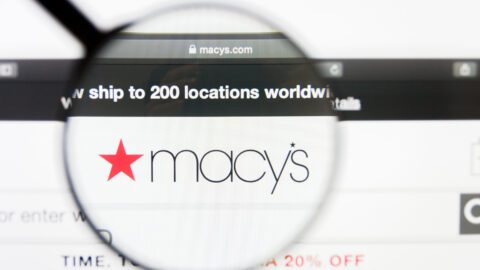 “Give the people what they want.” That’s the mantra shared by Mike Webster, SVP and General Manager for Oracle Retail. During a presentation at the newly formed Oracle Industry Connect conference last month, Webster described the global consumer “democratization of retail” study that identifies three retail imperatives:
“Give the people what they want.” That’s the mantra shared by Mike Webster, SVP and General Manager for Oracle Retail. During a presentation at the newly formed Oracle Industry Connect conference last month, Webster described the global consumer “democratization of retail” study that identifies three retail imperatives:
- Deliver “availability always,” meaning inventory can be attained from anywhere in the supply chain;
- Provide “access anywhere” and via any method that customers choose to shop; and
- Create “individual retail” experiences based on consumers’ buying history and preferences and trending styles.
One of the key themes discussed among many Oracle Retail customers was the avoidance of “customization” in order to implement solutions and business processes more seamlessly. “Retailers appreciate the fact that they can implement a new platform without having to do a lot of customizations,” Webster noted. “It doesn’t have to be a separate platform just because you are operating different brands.”
How Neiman Marcus Remains Relevant
In a keynote session, Karen Katz, President and CEO of The Neiman Marcus Group stated that “The biggest challenge is modernizing and staying relevant.” Founded in 1907, the department store retailer is focusing on omnichannel, the growth of a $1 billion+ e-Commerce business and the continued success of 41 “highly productive” stores.
Specifically, Katz mentioned the “immediacy of the shopping experience. We are all trying to figure out [how to perfect] shopping online and next-day delivery. As retailers we have to accept that the customer is in the driver’s seat and that we have to get in front of what her needs are.”
To that end, Neiman Marcus just relaunched its mobile app. A new feature includes a sales associate locator that allows shoppers to engage in a call, a text or face time with store employees.
To facilitate a successful omnichannel future, Neiman Marcus recently undertook an enterprise transformation with the help of Oracle and IBM. In March 2014, Neiman Marcus committed to a number of Oracle solutions, including:Oracle Retail Merchandise Planning and Optimization, Oracle Retail Merchandising Operations Management, Oracle Retail Supply Chain Planning and Execution, and Oracle Retail Merchandising Analytics.
Bringing Personalized Experiences To Kohl’s
With a goal of delivering a personalized omnichannel experience throughout its 1,150 stores, Kohl’s undertook a business transformation beginning in 2012 and continuing through 2014.
The first step in the journey featured the implementation of a new e-Commerce platform from Oracle ATG. Following a soft launch in May 2013, the site delivered “100% availability during the holiday season,” noted Richard Mozack, SVP, IT for the $20 billion retailer.
Next up was Oracle Retail Merchandising, kicking off in April 2013 with a plan to go live in 12 months. To date, the transformation has been a resounding success from Kohl’s perspective. “We could not continue to grow at our pace” without implementing these changes, said Mozack.
Groupe Dynamite Expands Globally With Oracle
Featuring two brands — Dynamite and Garage — Groupe Dynamite sought to increase its global presence, but was stunted by legacy systems. The privately held company includes 317 stores worldwide in eight countries. In 2014 the brand will add 15 new stores in the U.S.
The goal was to bring “global inventory under one consolidated view,” noted Michel Joncas, CIO. The 27-month project featured a number of Oracle Retail implementations, including: Oracle Commerce, Merchandising Operations Management, Merchandising Analytics, Sales Audit, Price Management and POS (pilot scheduled for May 2014).
By integrating systems across the business, Groupe Dynamite has been able to “remove duplication of effort between departments,” said Joncas. The company now operates with improved collaboration and teamwork: “Seven weeks post-implementation we now have a 9am meeting every day to talk about any issues.”
More Retail Success Stories
Here’s a recap of some of the other retail presentations held during Oracle Industry Connect:
- After implementing Oracle Commerce, the Ulta.com web site is more flexible from a business perspective and features a more product-focused home page. Product detail pages also feature complete purchase information. As a result, the retailer reported an 82.5% increase in comp store growth year over year in Q4 2013.
- Luxottica Retail (including the Sunglass Hut brand) has seen four straight years of 15% to 25% polarized sales growth following the implementation of Oracle Retail Predictive Application Server (RPAS). The chain includes more than 10,000 stores running with RPAS.
- Oracle Commerce helped Stage Stores boost its online offerings during the busy 2013 holiday season. Online sales increased 30% based on the fact that the site was up and functional. Additionally, the 100-store company can now assort and fulfill from the store, providing real-time inventory availability to Stage Store shoppers.
Final Thoughts On A New Conference Model
Bringing all industries together for the first time in a new user-oriented event was “bittersweet” for the Oracle Retail group, which had been putting on the Oracle Crosstalk event specifically for its retail customers for a number of years, according to Webster.
But, on the flipside, Webster added: “We’re giving our retail community an opportunity to broaden their networks and listen to the experiences from peers in other industries.”
Other industries are starting to uncover and use learnings from the retail segment. Case in point: Webster had executives from three healthcare and two telecommunications companies ask him to speak to their constituents.













